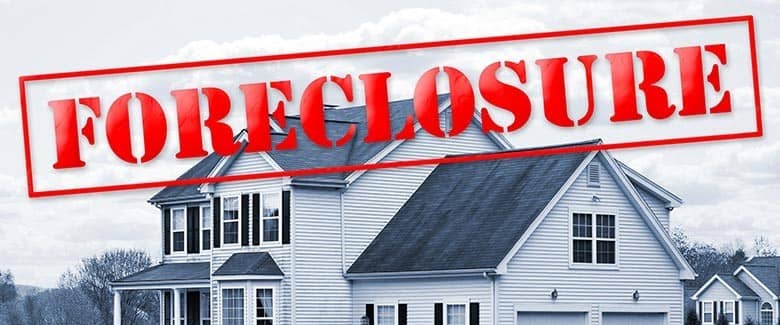Introduction: Why Foreclosures in Orlando Are a Smart Buy
Orlando’s real estate market is shifting in favor of buyers. With inventory up around 16 % since December—marking the highest level since July 2015—buyers now have more negotiating power than in recent years according to Orlando Regional Realtors Association. For Investors and owner-occupiers alike, foreclosure properties represent a golden opportunity. As your local Realtor here in Orlando, let me walk you through the landscape, hot neighborhoods, and standout properties worth watching.
📈 Market Conditions: A Buyer’s Playground
- More inventory, more power: Orlando now has roughly 7.7 months of supply, crossing into buyer-favorable territory—compared to the national average of ~6 months.
- Modest price growth: Prices are still climbing, but in a stable, moderate fashion—ideal for long-term investments .
- Rising foreclosures: Florida ranks third nationally in foreclosure filings—roughly one filing per 3,086 units—meaning more homes entering the distressed market.
🔍 What to Look For in Orlando Foreclosures
- Neighborhood quality: Focus on zip codes like 32808, 32811, 32805, 32804, 32825—areas with solid school systems, amenities, and resale value.
- Property condition: Target “REO” homes—bank-owned properties that often come cleaned up, inspected, and ready for renovation .
- Auction vs. MLS: Auctions may yield lower prices but carry higher risk. MLS-listed foreclosures via Realtor.com provide transparency and access .
🏠 Top Foreclosure Listings to Watch in Orlando
Here are real foreclosures currently offering strong value, listed directly on the MLS or scheduled for auction:
- 5441 Arpana Dr, 32839
- 5 bd / 4 ba, 2,642 sq ft • $267,000
- Spacious layout in a quiet neighborhood—huge upside with cosmetic updates
- 624 American Heritage Pkwy, 32809
- 3 bd / 2 ba, 1,775 sq ft • $269,900
- Desirable school zone, mid-range size—great for families
- 3673 Westland Ct, 32818
- 3 bd / 2 ba, 946 sq ft • $149,900
- Compact and affordable; ideal for first-time buyers or a rental investment
- Upcoming Auction: 2978 Mystic Cove Dr, 32812
- 3 bd / 2 ba, 2,372 sq ft • Auction date: June 11, 2025 (orlandoforeclosureauctions.com).
📌 Why These Properties Stand Out
- Arpana Dr: High bang-for-buck in a solid suburban pocket—big footprint, small price tag.
- American Heritage Pkwy: Family-friendly home in a highly desirable school district.
- Westland Ct: Affordable entry point—great for flipping or renting.
- Mystic Cove (Auction): Bank-owned, well-sized family home with major value upside—just watch auction funding risks.
✨ Realtor Tips for Foreclosure Buyers
- Work with a savvy Realtor (like me!): Auctions and pre-foreclosures come with unusual deadlines and paperwork. You’ll want experienced guidance.
- Get pre-approved: Lenders require proof of funds—especially for auction/mortgage auction scenarios.
- Inspect early: With MLS foreclosures, schedule inspections ASAP. Auction homes often are “sold as-is,” so assess what repairs might cost.
- Know your exit strategy: Are you flipping, renting, or occupying? That’ll shape your offer, financing timeline, and renovation scope.
🏘️ Neighborhood Hotspots at a Glance
| Zip Code | Highlight Areas | Median Foreclosure Price |
|---|---|---|
| 32808 | College Park, Rosemont | $239k–$306k |
| 32811 | Alafaya Woods, Conway | $216k–$249k |
| 32805 | Lake Como, Mills 50 | $260k–$349k |
| 32818 | Downtown fringe | $149k–$369k |
These zones pair affordability with growth potential—perfect for both immediate value and long-term gain .
🔧 Financing & Renovation Pointers
- Renovation loans: FHA 203(k) or Fannie/Freddie loan programs allow you to combine purchase and rehab funds.
- Contingencies matter: While auctions are “buy as-is,” MLS deals often include inspection contingencies if you move fast.
- Manage ROI: Aim for no more than 70% of ARV (after-repair value) minus renovation costs for flips.
Conclusion – Why Orlando Foreclosures Are a Win-Win
- Less bidding drama: With increased supply, foreclosure deals aren’t chasing sky-high prices.
- Solid investment fundamentals: Orlando’s growing population, strong economy, and moderate price growth create a resilient backdrop .
- Opportunity for everyone: From family homes to rental properties, foreclosure inventory provides diverse entry points.
Let’s Make It Happen!
Dreaming of your next big real estate move? Whether it’s a cozy starter home or a multi-thousand-dollar flip, Orlando’s foreclosure market is full of potential. Reach out, and let’s line up viewings—or even prep you for a June auction.

Curious? Let’s talk! 📞 407-902-7750
Drop me a message to review these listings up close, explore financing tailored to your goals, or strategize your next foreclosure win.






